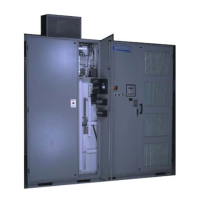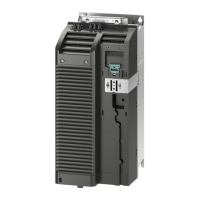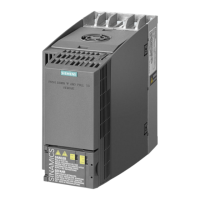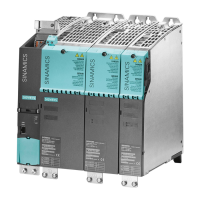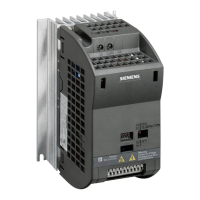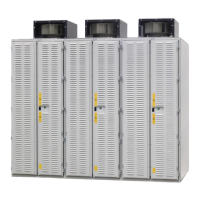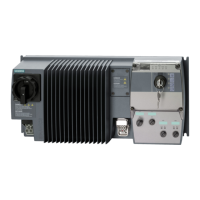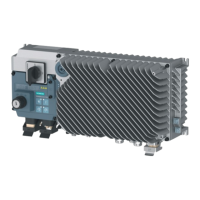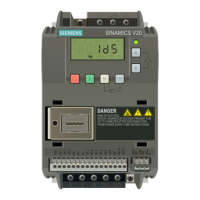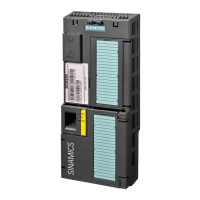8.10 Regenerative Braking (six-step)
8.10.1 Regen Braking (Six-Step)
Some cells have an active front end (AFE), which allows regeneration power to ow from the
drive output to input. No drive input reactors are needed for this regeneration algorithm.
For this algorithm, cell DC bus voltage is not controlled. Therefore, when the line impedance is
high and the drive is regenerating heavily at near-rated speed, where the primary regeneration
current is highest, the drive input voltage may increase to the point where cells trip on the DC
bus overvoltage fault.
Operation of Regenerative Braking
To use regenerative braking, the AFE must be maintained in the "ON" condition, therefore the
run request must be active, and the speed demand reduced to zero to brake the load. This
requires a special SOP conguration.
OV Rollback Function
The "OV rollback" function limits the rise in the drive input voltage produced by regenerative
current to prevent a cell DC bus overvoltage fault. The output torque (power) reduces to a point
that will not cause an overvoltage. After this point is reached, the torque limitation caused by the
rollback is defeated, and full braking torque is available.
NOTICE
Limited drive capabilities
A delay can occur when transitioning from motoring to regenerative braking.
Do not use regenerative braking as a replacement for full 4-quadrant operation.
8.10.2 Regen Braking (Six-Step) Parameters
Parameters for Regenerative Braking
Refer to AP Settings (2585) in Section Options for Drive Menu (2) of Chapter Parameter
Assignment / Addressing for the parameters associated with this function:
• Regen OV I gain (2623)
• Regen OV P gain (2624)
• Regen shift angle (2625)
Advanced Operating Functions
8.10 Regenerative Braking (six-step)
NXGPro+ Control Manual
248 Operating Manual, A5E50491925A
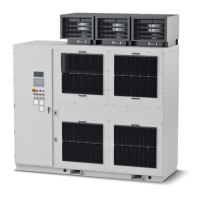
